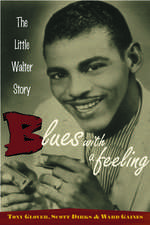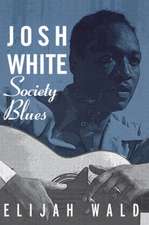How High Should Boys Sing?: Gender, Authenticity and Credibility in the Young Male Voice
Autor Martin Ashleyen Limba Engleză Paperback – 9 sep 2016
| Toate formatele și edițiile | Preț | Express |
|---|---|---|
| Paperback (1) | 469.34 lei 43-57 zile | |
| Taylor & Francis – 9 sep 2016 | 469.34 lei 43-57 zile | |
| Hardback (1) | 1057.09 lei 43-57 zile | |
| Taylor & Francis – 21 sep 2009 | 1057.09 lei 43-57 zile |
Preț: 469.34 lei
Nou
Puncte Express: 704
Preț estimativ în valută:
89.82€ • 93.20$ • 75.07£
89.82€ • 93.20$ • 75.07£
Carte tipărită la comandă
Livrare economică 17-31 martie
Preluare comenzi: 021 569.72.76
Specificații
ISBN-13: 9781138252639
ISBN-10: 1138252638
Pagini: 194
Dimensiuni: 156 x 234 x 17 mm
Greutate: 0.45 kg
Ediția:1
Editura: Taylor & Francis
Colecția Routledge
Locul publicării:Oxford, United Kingdom
ISBN-10: 1138252638
Pagini: 194
Dimensiuni: 156 x 234 x 17 mm
Greutate: 0.45 kg
Ediția:1
Editura: Taylor & Francis
Colecția Routledge
Locul publicării:Oxford, United Kingdom
Cuprins
Contents: Introduction; The background; Singing as social control of boyhood; The physiology of the young male voice; Subjectivity and agency in the young male voice; Admiration of the boy; A child doing a man's work in a man's world; Angels in the marketplace; We can't sing like men, so we won't sing at all; Ambassadors and mediators; The future; Index.
Notă biografică
Martin Ashley is Head of Research in the Faculty of Education at Edge Hill University, near Liverpool. After an early career in sound recording with the BBC, he trained as a middle school music teacher and taught for seventeen years in state and independent middle schools, including a period at a cathedral choir school. He has acted as a consultant for the UK government's National Singing Programme, and for the associated Choir Schools' Association Chorister Outreach Programme. He has recently completed a major project on widening boys' participation in choral singing with the National Youth Choirs of Great Britain.
Recenzii
’This book is an essential read for choir directors, cathedral organists, schoolteachers and indeed anyone interested in the wider subject of understanding and motivating boys. I owe Martin Ashley a debt; as a result of this book I shall be refocusing my mind on the practical application of much that he has illuminated. And as a start - I’m going to read the book again and encourage colleagues to do the same!’ Music Teacher ’... [this] is one of the most important and comprehensive books on the subject of boys’ voices ever written... His book should be required reading for every choir director.’ 5 stars, Editor's Choice, Classical Music, November 2009 'How High Should Boys Sing? [...] has a much wider scope than the title suggests. It would be of interest to any general reader who is involved in singing, whilst providing a scholarly approach for the more specialised researcher, and would be a useful and thought-provoking addition to the library of any singing teacher, choral director or music educator.' British Journal of Music Education 'Significant... a book which is always interesting, challenges assumptions and offers profound insights... This is a book that would be of interest to educators, psychologists and musicians alike.' International Choral Bulletin
Descriere
'A boy sings...a beautiful thing' (www.boychoirs.org), but is it? What kinds of boy, singing what kinds of music and to whom? Martin Ashley presents a unique consideration of boys' singing that shows the high voice to be historically, culturally and physiologically more problematic even than is commonly assumed. The book intertwines the study of singing with the study of identity to create a rich resource for musicians, scholars, teachers and all those concerned with young male involvement in music through singing. The conclusions of the book will challenge many attitudes and unconsidered positions through its argument that many boys actually want to sing but are discouraged by a failure of the adult world to understand the boy mind. Ashley intends the book to stand as an indictment of much complacency and myopia with regard to the young male voice.










